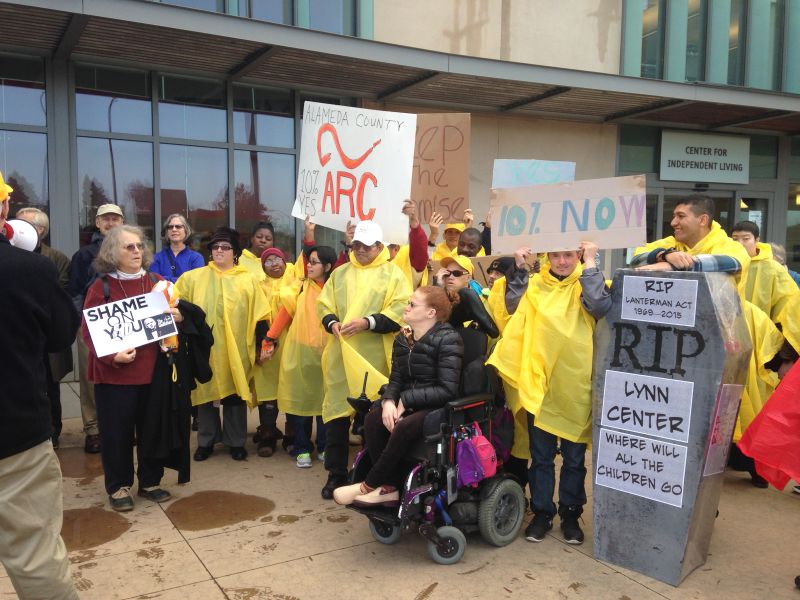So people took to the streets in San Diego, Bakersfield, Redding, and other cities.
Andrew Silliman marched in Berkeley to rally support for a job training program he attends at ToolWorks for people with developmental disabilities.
“I want to work at Applebee’s,” he says. “I want to do dessert, cook eggs, do your dishes. Everything. It’s cool.”
But advocates are worried that if the state doesn’t increase funding for the program for programs like Silliman's job training program, they might close. Several day programs and job-training sites have been shuttered already in recent years, Hornbecker says, adding that his agency loses $200,000 a year.
“We’re running on reserves. We’re liquidating property,” he says. “That’s no way to run a business. And, we can’t pay people a living wage.”
While the state has passed laws to increase the minimum wage and offer paid sick leave, adding to agencies' labor costs, Hornbecker says they haven't gotten any extra funds to comply with these mandates. Many agencies have simply cut hours, and that’s forced a lot of workers to move on.
"The turnover rate is so high, by the time folks get trained they leave for a better job," says Paul King, whose son receives supportive services so he can live independently. "The turnover rate is destroying these wonderful programs."
Jerry Brown called for a special legislative session on health care financing this summer, in part, to come up with new revenue streams to support services for people who are developmentally disabled. Lawmakers have proposed taxes on alcoholic beverages and health plans to raise money for the services, but so far, those proposals are floundering.
“Democrats and Republicans agree that these are good services,” says Assemblymember Tony Thurmond, D-Richmond. “Not everyone agrees we need to create taxes to support it.”
He says he will continue proposing solutions when meetings of the special session resume in January. Thurmond says even these taxes will be cheaper than the alternative.
“I would hate to see people going into institutional care, which is more restrictive and more expensive,” he says.
California is seen as a leader in providing community-based services that allow people with developmental disabilities to live on their own or with their families. These services were established in 1969, under the Lanterman Act, and are paid for by the state. There are no income thresholds for families.
Shira Leeder wants to make sure those rights are preserved. She has cerebral palsy and was at the Berkeley protest in her wheelchair. Without the funding increase, she says, she could end up living in an institution.
“That’s not what we want. We want to be here,” she says. “And we want to have a life, like everybody else.”
